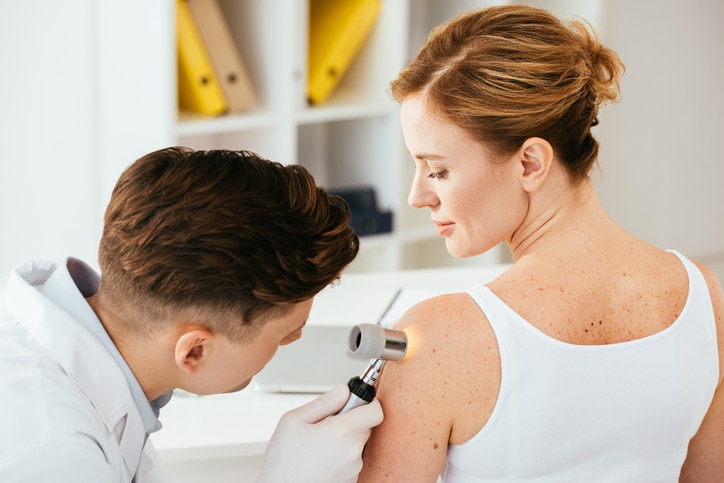If you have noticed the development of a skin lesion that looks scaly, rough, or crusty, it may be a precancerous lesion known as actinic keratosis. Actinic keratosis can develop due to long-term sun exposure and should be treated immediately. These lesions can develop into a type of skin cancer known as squamous cell carcinoma—one of several cancer types.
What causes actinic keratosis to form?
Actinic keratosis is a result of chronic sun exposure on the skin with no protection from ultraviolet, or UV, rays. These lesions can appear anywhere on the face or body, and can be avoided by proper sun protection.
How is actinic keratosis treated?
One a patient has visited their doctor at Florida Westcoast Skin and Cancer Center to get a proper diagnosis of their condition, they can then work with Dr. Michael Scannon and his team to discuss treatment. Actinic keratosis can be treated in a number of different ways. Photodynamic therapy is sometimes used, during which a special topical medication is applied to the lesion and then activated using special blue light. This helps the medication create a unique chemical that then develops and kills the precancerous cells within the lesion. Additionally, patients may choose to have the lesion removed with topical therapy, excision, or liquid nitrogen. Regardless of the treatment patients choose, it is important to have these lesions diagnosed and removed as soon as possible to avoid the development of skin cancer.
How is actinic keratosis diagnosed?
In most cases, a trained professional such as Dr. Michael Scannon can provide a proper diagnosis off of a visual examination in his office. In some cases, he may take a sample of the lesion during a biopsy to have it evaluated for cancerous cells prior to removal or treatment.
Learn more about actinic keratosis treatment in Tampa, Florida
Dr. Michael Scannon and his associates at Florida Westcoast Skin and Cancer Center believe in offering new and current patients a range of solutions for the skin and body. If you are bothered by actinic keratosis and want to speak to a professional about treatment, call our practice at (813) 877-4811 today and request a visit.

